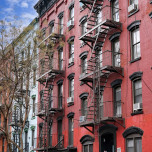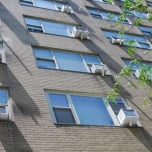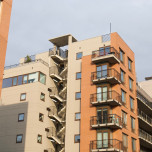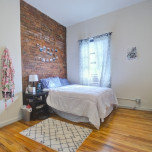
How to Rent an Apartment in New York City
Closing The Deal
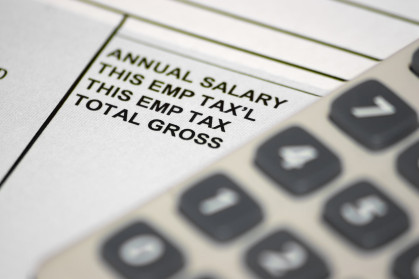
Minimum income to rent a NYC apartment
Just because you can afford to rent an apartment doesn't mean you're qualified to in the eyes of a New York City landlord. Most will require that your annual income (or, alternatively, the combined annual income of you and your roommates) equals at least 40-45 times the monthly rent.
For example, to rent a $3,000 per month apartment, your annual income will need to be around $120,000. You should also expect to have your credit report reviewed. Most landlords will be concerned if you have a score under 700 (out of 850), and/or you have a history of late payments, judgments, or bankruptcies. In that case, you may not qualify for an apartment without a guarantor or cosigner.
If you don't meet the income threshold and can't (or don't want to) find a guarantor, there are other ways to get around the 40x rent rule, such as finding a small mom-and-pop landlord or condo owner who may be more flexible than a large leasing company.
Are you looking to work out a leasing agreement on your own? Lawrina has many templates to help you get going, including a rent to own agreement template and many more.
How to find a lease guarantor
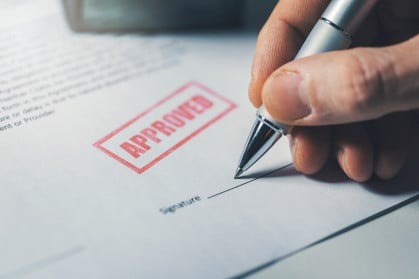
If you don't meet a landlord's financial or employment requirements, you'll need to find a guarantor for your lease. A guarantor signs a contract that makes them liable if you default on your lease; for this reason, guarantors are usually close family members or institutional guarantors that charge you a fee to guarantee your lease.
If you use a personal guarantor, most landlords will only accept guarantors that live in the Tri-state area (New York, New Jersey or Connecticut) and who have an annual income of 80 times or more than the monthly rent of the apartment you’re applying for. Typically, your guarantor will need to submit the same documents requested of you by the landlord (e.g. bank statements, tax returns, etc.). And if you have roommates, most landlords will only accept one guarantor--so that person needs to be comfortable guaranteeing the entire lease.
Negotiating the rent & getting rental concessions

Negotiating the rent & getting rental concessions
New York City landlords traditionally are not very open to negotiating a lower rent. In some of the most in-demand parts of the city, or in a particularly hot rental market, there may even be bidding wars wars over desirable apartments—with renters offering to pay more than the asking rent in addition to covering any owner-paid broker fee.
Rather than outright rent reductions, some landlords may offer a concession in the form of one or two months of free rent (or many more during the worst months of the pandemic) during slower markets or when trying to lease up a new building all at once.
Of course, there are exceptions for apartments that are hard to rent—landlords are still likely to offer a more generous concession and be open to rent negotiations for an apartment that is hard to lease for some reason—maybe it is on the first floor of a noisy street or in a building with a history of bed bug problems. In those situations, you should be able to ask for some kind of deal.
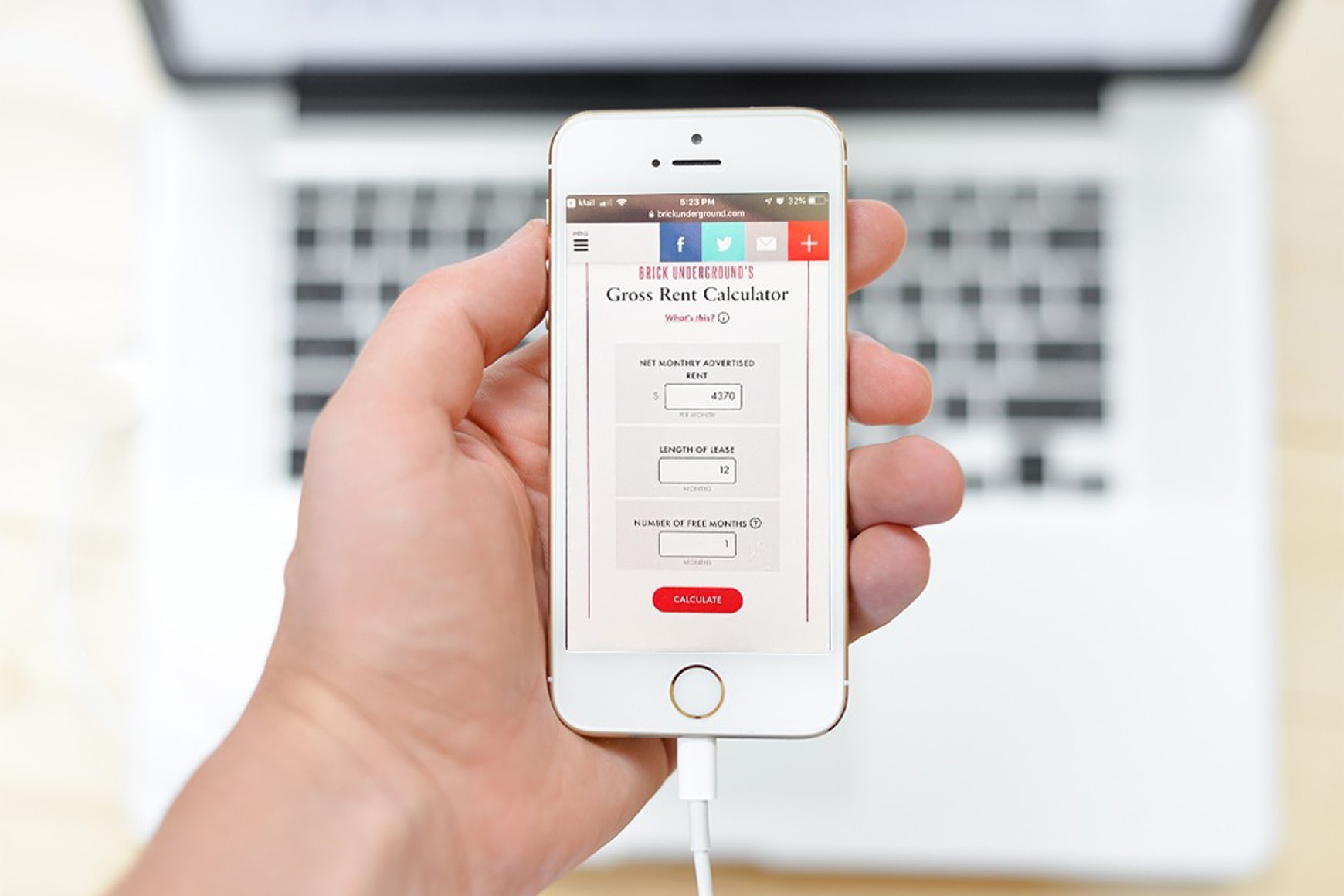
You’ll encounter the most flexibility in what is traditionally the slowest part of New York City’s rental cycle, from November to March. Offer to move in immediately and ask for a lease of 15 or 16 months instead of a year, enabling the landlord to re-list the apartment during the busy summer months.
And if you don’t plan on moving again soon, asking for a longer lease helps lock in your rent and avoid an increase from coming up quickly. Keep in mind that if you are offered free months when signing a lease, that concession is typically not available when you go to renew your lease—creating a de facto rent increase.
You can also try to negotiate any fees for amenities or to get something in the apartment upgraded. For example, see if the building will waive the gym fee or bike storage fee, or pay for a minor improvement to the apartment like replacing an appliance or refinishing a worn out floor. It’s not a lower rent but you’ll get something of value that can make your life more comfortable.
Pocketing a free month's rent is a hollow victory if you have to choose between overpaying or moving when your lease is up. For expert help finding buildings offering the most valuable concessions, negotiating with landlords and leasing agents, and generally getting the best possible deal, put your search into the smart and capable hands at The Agency. A tech-savvy real estate brokerage that's helped hundreds of Brick Underground readers find their ideal NYC apartments, The Agency will charge a broker's fee of 10 percent of a year's rent on open listings instead of the usual 12 to 15 percent if you sign up here. Bonus: The agents at The Agency are delightful to deal with.
How to fill out a rental application, and questions to ask about your lease before you sign it
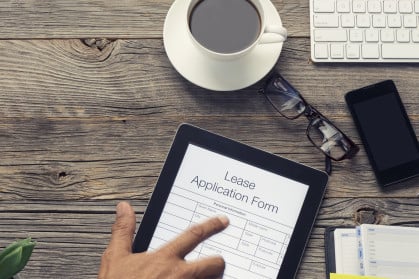
When you find an apartment that you want, you need to be prepared to jump on it fast or it will be snapped up by someone else. That means if you like the place you need to say “yes” on the spot and fill out an application immediately.
Of course, to do that, you need to have all your documents to support your application ready to go before you even show up to see the apartment.
Your letter of employment might not seem like a big deal—especially when you’re already providing your pay stubs, but it is crucial. Ideally your supervisor will include some language that indicates your job is stable and that you will be employed for the long-term.
Even though it is optional, it is a good idea if you’ve rented before to have a letter of recommendation from your previous landlord saying that you’re a good tenant who paid the rent on time and kept the apartment in good condition.
Another tip: If you have a pet, include a letter in your application package from your vet showing they are up to date on vaccinations. Include a cute photo too—you won’t go wrong there.
Don't let the upfront costs of renting in New York keep you from your next apartment. Instantly finance your deposit, first month's rent and more with Kubbi. To learn more and ask about joining Kubbi's exclusive launch in Manhattan, visit gokubbi.com.
Your supporting documents will include:
- Last two pay stubs
- Photo ID
- Last three months of bank statements
- Last two years of tax returns
- Letter of employment on employer letterhead stating job title, length of employment, salary and expected bonus; or if self employed, a letter from your CPA
- Proof of any other funds (e.g. stocks, bonds, etc.)
- Previous landlord reference letter if applicable; and contact information for prior landlords
- Personal or business reference letters (sometimes required by co-ops and a bonus if you apply for a rental)
- Most of the above is needed from your guarantor if you will be using one
You'll need to pay an application and credit check fee. Under New York State's 2019 landmark rent reform laws, landlords can charge a maximum of $20 per prospective tenant. If you supply a copy of your own credit report pulled within the last 30 days, your landlord may waive the fee.
If you're approved, you'll need to hand over the first month’s rent, security deposit (capped at one month's rent by New York's 2019 rent reform—landlords can no longer ask for the first and last month’s rent in addition to a security deposit), and a broker’s fee by certified check from a New York bank
When it comes to your intiail funds, including the application fee, first month’s rent, broker’s fee, and security deposit, you will need hard funds in the way of a certified check, money order, or possibly an online credit card payment. No personal checks.
After your application is approved, the landlord will expect you to sign the lease and deliver the certified checks within a short time (e.g. 48 hours).
Things to look for in your lease

- Does your lease have an option to renew? If so, how far in advance do you have to claim your option to renew? How will rent increases be figured—by a fixed dollar amount, a percentage of the first year's rent, or cost of living increases?
- Are any utilities included in the rent?
- Are pets allowed?
- Is there a restriction on the number of air conditioning units you may have?
- Is use of outdoor space specifically mentioned in the lease? If not, you won't be titled to a rent abatement if the space becomes unusable for any reason
- What is the sublet policy?
- What does the lease say about the landlord's right to show the apartment to tenants—how many days before the end of the lease can the landlord start showing it, are there any restrictions on time or days of week, who will be allowed to access and show the apartment, and whether you'll have to make the apartment available for open houses.
- If you are getting a free month or two rent as a rental concession, is the free month at the beginning or end of your lease? What happens if you need to break your lease? Do you know what the gross rent amount is (the amount you’ll actually need to pay each month)?
Ready, set, search!

Congratulations: You've made it all the way through Brick Underground's renter's guide, which means you have a basic understanding of what to expect as you navigate your way through the rental jungle of New York City.
Depending on the complexities of your search, your budget, or the speediness with which you need to find a place, you may want a good real estate agent by your side, one who can, for instance, find pet-friendly buildings, or roommate-friendly ones that will let you subdivide your space with a temporary wall, or landlords who may be flexible with guarantors, full-time students, international renters with no U.S. credit history, recent grads with a good job but no work history, or retirees with money but no job. The rental experts at Brick Underground partner Triplemint—a technology-enabled brokerage founded by a pair of Yale grads in response to the frustrating rental experiences of their classmates and colleagues—will do just that. Bonus: If you sign up here, you can take advantage of Triplemint's corporate relocation rate of 10 percent of a year's rent on open listings versus the typical 12-15 percent.
Happy hunting!






















